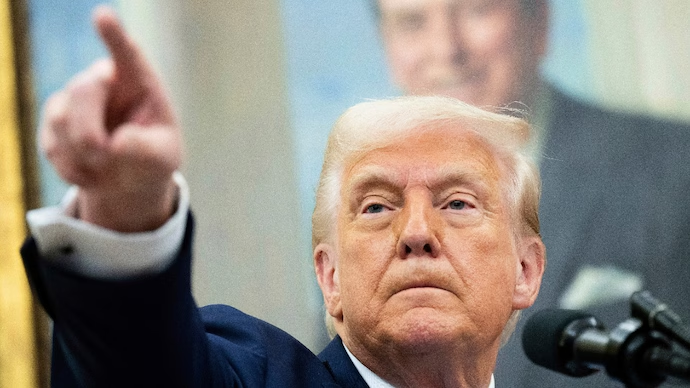Trump’s Third Term: Unveiling the Shocking Possibility and Its Implications
In the ever-tumultuous world of American politics, few topics have ignited as much debate as the recent discussions surrounding President Trump’s Third Term. As whispers turn into headlines, it’s essential to dissect the facts, the constitutional boundaries, and the potential ramifications of such a move.
The Constitutional Roadblock: The 22nd Amendment
At the heart of this debate lies the 22nd Amendment to the U.S. Constitution, ratified in 1951. This amendment was introduced after Franklin D. Roosevelt’s unprecedented four-term presidency, aiming to prevent any individual from holding the presidential office for more than two terms. Specifically, it states:
“No person shall be elected to the office of the President more than twice…”
This clause seems to set a clear boundary: two terms, and you’re out. However, as with many legal documents, interpretations can vary, leading to the current buzz.
Trump’s Stance: Serious Intent or Political Theater?
President Trump has never been one to shy away from controversy. In a recent NBC News interview, he hinted at the possibility of seeking a third term, stating there are “methods” to achieve this, though he refrained from delving into specifics. He emphasized that he wasn’t joking about the notion, adding fuel to the speculative fire.
Such statements have left political analysts and the public alike pondering: Is this a genuine aspiration or a strategic move to keep opponents on their toes?
Exploring the “Methods”: Loopholes and Legal Hurdles
The term “methods” has sparked curiosity and concern. One theory suggests that Trump could run as vice president alongside a presidential candidate like Vice President JD Vance. Should Vance win and subsequently resign, Trump would ascend to the presidency. However, legal experts argue that this maneuver would likely violate the 12th Amendment, which bars individuals ineligible for the presidency from serving as vice president.
Another avenue being explored is the introduction of a constitutional amendment to repeal or modify the 22nd Amendment. Republican Congressman Andy Ogles has proposed such an amendment, aiming to allow Trump to run for a third term. However, the process of amending the Constitution is arduous, requiring approval from two-thirds of both the House and Senate and ratification by three-fourths of the states—a steep hill to climb in the current polarized political climate.
Historical Precedents and Political Implications
Historically, the two-term limit has been respected, with few exceptions. Ulysses S. Grant sought a third term in 1880 but was denied his party’s nomination. The introduction of the 22nd Amendment solidified the two-term tradition, making any deviation a significant constitutional challenge.
The mere discussion of a third term has profound political implications. It challenges the foundational principles of American democracy and raises questions about the balance of power. Critics argue that such moves could set a dangerous precedent, undermining the checks and balances designed to prevent authoritarianism.
Public Sentiment: A Nation Divided
As with many issues in today’s America, public opinion is deeply divided. Supporters of President Trump view the potential for a third term as an opportunity to continue his policies and “Make America Great Again” agenda. They argue that if the people want him, they should have the right to re-elect him, constitutional constraints notwithstanding.
Opponents, however, see this as a blatant disregard for democratic norms and a potential slide toward authoritarian rule. They emphasize the importance of upholding the Constitution and the safeguards it provides against the consolidation of power.
List of Contents
Conclusion: A Political Chess Game with High Stakes
The discussions surrounding President Trump’s Third Term are more than mere political banter; they represent a critical juncture in American democracy. While the constitutional barriers are formidable, the very exploration of such possibilities underscores the evolving nature of political strategy in the 21st century.
As the nation watches this drama unfold, one thing is certain: the coming years will be pivotal in determining the resilience of America’s democratic institutions and the enduring power of its Constitution.
Note: This article is based on current events and interpretations as of March 31, 2025. Political landscapes are dynamic, and developments may have occurred since this publication.
Next Read -> Thailand Earthquake 2025 : 7 Shocking Facts You Need to Know













